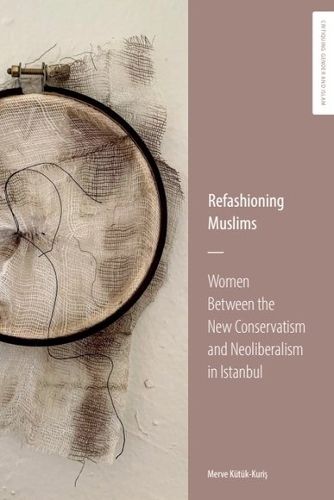Readings Newsletter
Become a Readings Member to make your shopping experience even easier.
Sign in or sign up for free!
You’re not far away from qualifying for FREE standard shipping within Australia
You’ve qualified for FREE standard shipping within Australia
The cart is loading…






Refashioning Muslims explores the self-presentations and daily performances of young, bourgeois, fashion-conscious Muslim female entrepreneurs who emerged as new social actors in fields of fashion, leisure, charity and the family during the 2010s. It examines how these "Muslim fashionistas" significantly bolster governmental capacity to build public consent by projecting images of successful entrepreneurs, benevolent philanthropists and ideal mothers. However, their performances entail moments of imperfection and moral dilemma as they navigate market demands and everyday aspirations often conflicting with Islamic orthodoxy and traditional gender order.
The book analyses how Muslim fashionistas cooperate with and challenge religious, classed, and gendered ideals, shaping a neoliberal Muslim subjectivity in the new Turkey. Drawing on Ricoeur's notion of 'narrative identity' and Bourdieu's notion of 'regulated liberties', the book argues that women's subjectivities are guided by the dynamic unity of the narrative configuration of the self, and formed through a complex interplay between autonomy and (self-)regulation.
$9.00 standard shipping within Australia
FREE standard shipping within Australia for orders over $100.00
Express & International shipping calculated at checkout
Refashioning Muslims explores the self-presentations and daily performances of young, bourgeois, fashion-conscious Muslim female entrepreneurs who emerged as new social actors in fields of fashion, leisure, charity and the family during the 2010s. It examines how these "Muslim fashionistas" significantly bolster governmental capacity to build public consent by projecting images of successful entrepreneurs, benevolent philanthropists and ideal mothers. However, their performances entail moments of imperfection and moral dilemma as they navigate market demands and everyday aspirations often conflicting with Islamic orthodoxy and traditional gender order.
The book analyses how Muslim fashionistas cooperate with and challenge religious, classed, and gendered ideals, shaping a neoliberal Muslim subjectivity in the new Turkey. Drawing on Ricoeur's notion of 'narrative identity' and Bourdieu's notion of 'regulated liberties', the book argues that women's subjectivities are guided by the dynamic unity of the narrative configuration of the self, and formed through a complex interplay between autonomy and (self-)regulation.